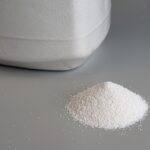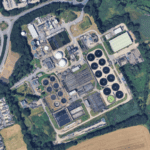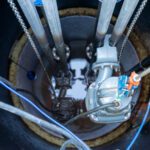Yorkshire schools SuDS partnership boosts flood resilience
Schools are ideal locations for sustainable drainage systems as part of flood and storm overflow reduction strategies, says Lorna Davis, director, SuDSPlanter Ltd, who...
Puraffinity and US Army Corps of Engineers partner to advance PFAS remediation technologies
This article contains paid for content produced in collaboration with Puraffinity.
Puraffinity, a leading innovator of advanced adsorbents for the removal of per- and polyfluorinated...
Improving predictions of flood severity, place and time with AI
A novel framework is said to offer accurate water flow predictions and simulations with unprecedented efficiency
Floods are some of the most devastating natural disasters...
Over half of Thames Water’s sewage works struggling to meet demand
Independent analysis has estimated that more than half of Thames Water’s 351 sewage treatment works are currently operating without sufficient capacity to treat the...
Clean Shipping Alliance criticises move to restrict use of scrubbers in ports
The Clean Shipping Alliance, a representative body within the shipping industry, has criticised a decision last week by North Atlantic marine protection body OSPAR...
New SuDS National Standards aim to support the government’s housebuilding aspirations
Experts from the water, infrastructure and environmental sectors appeared to welcome the UK Government's new standards for the design, maintenance and operation of sustainable...
Conductivity level probes prioritise robustness and ease of use
This article contains paid for content produced in collaboration with VEGA Controls.
As industries continue to focus on safety, efficiency, and system reliability, VEGA Controls...
Flow monitoring off-grid in Cornwall
The Loe Bar in Cornwall is a shingle and flint bank that separates the sea from Loe Pool, presenting an unusual set of challenges...
Ofwat Innovation Fund highlights nature’s role in solving water sector challenges
The £600m Ofwat Innovation Fund has published its latest learning report, From source to sea: harnessing nature and communities for whole catchment innovation.
The new...
WWTW in Scotland wins award from the Royal Academy of Engineering
A wastewater treatment works in West Lothian has won a prestigious sustainability award from The Royal Academy of Engineering.
Owned and operated by Scottish Water,...
Profiling the growing use of AI in public-sector WWTPs
As the global population grows and urbanization accelerates, wastewater treatment plants (WWTPs) are facing increasing pressure to deliver high-quality effluent. AI will be an...
Blockage-detecting robot ready to patrol sewers, says group behind it
A sewer robot that inspects pipework and raises blockage alerts before flooding occurs is to be deployed in a live network for the first...
People should ask questions about forever chemicals in their workwear
As the textile and laundry industries come under increased scrutiny to better manage PFAS contamination, specialist PPE workwear and laundry firm phs Besafe is...
Detecting algal blooms in real time: Group presents inexpensive method
A real-time, low-cost algal bloom monitoring system has been developed by Korean researchers, employing inexpensive optical sensors and a novel labeling logic. The system...
Thames Water receives £122.7m fine in reported sewage spills crackdown
Following investigations by OFWAT, Thames Water has received two penalties totalling £122.7m, in effect “the largest fine ever handed to a water company in...
Data-driven pumping can cut storm overflows
Next level data collection is transforming conventional pumping systems into insight-led assets, writes Andrew Welsh of Xylem UK, ahead of the Water Equipment Show...
New trade body will represent the Property Flood Resilience sector
The International Property Flood Resilience Association (IPFRA) launched on 9 May with a mission to support, promote, and grow the property flood resilience (PFR)...
New pilot study detects faecal pollution marker in UK rivers
A pilot study has reportedly succeeded in offering a better understanding of contamination sources in national waterbodies, providing water companies with the capability of...
Climate trends in river flow revealed by global dataset
Important new data about river flow is now available from the Reference Observatory of Basins for International hydrological climate change detection (ROBIN) dataset, announced...
Microplastics are still getting through wastewater plants
Microplastics collected from the sand on the beach of the Black sea.
Microplastics are still slipping through wastewater treatment plants, and finding their way...






















